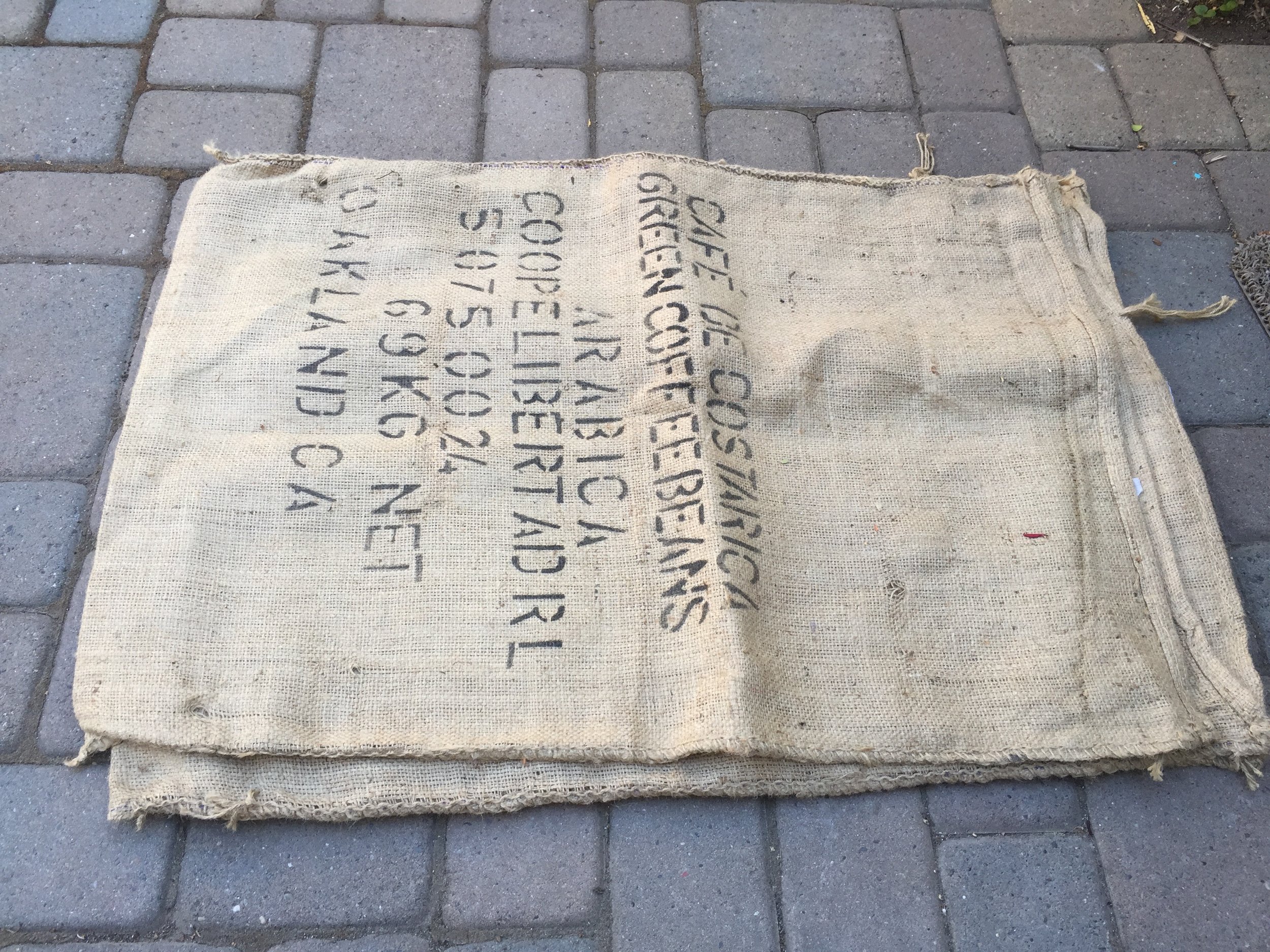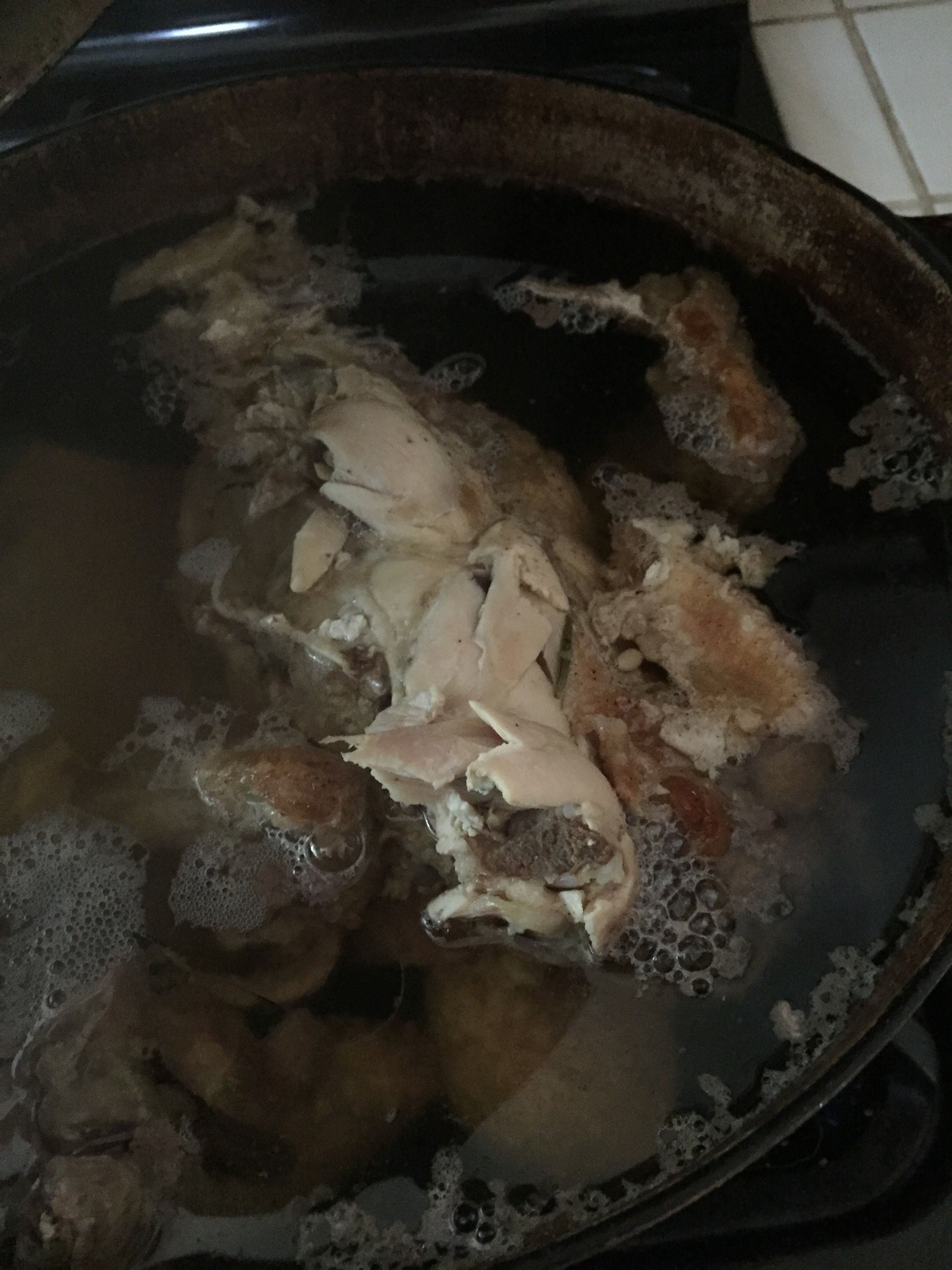Like most Americans, I love coffee. I make my own cold brew and have two cups of it every morning, without fail, no matter the season, while Tom prefers and makes it hot every day. Our spent grounds and filters go into our compost, of course, along with tea bags.
Several years ago I was touring an urban garden and the owner mentioned that they used a lot of coffee chaff in their raised beds, mixed into the soil. I had never heard of coffee chaff, but filed that nugget away to explore some other time. I totally forgot about it until a couple of weeks ago in my soil class. We had a guest speaker, Alane Weber, who makes extraordinarily high-quality compost which sells for $65 per five gallon bucket (!) and is in great demand. She recommended using coffee chaff in compost, which, even though brown, is treated like a 'green' - that is, high in nitrogen, like grass clippings.
I filed that away, until one morning when I was out adding rice hulls to the hen house. I've been enjoying the rice hulls a lot - I'm not worried, anymore, about the environmental price of sand, or the price the addition of sand would cost my own soil aggregation; instead, I'm adding a carbon-rich material which will enhance my soil and also takes a waste product out of the waste stream. But darn it, organic rice hulls are expensive. Not sustainable to my pocketbook! And I'm using more of them than I did of sand, because it doesn't sift like sand did, so I invariably put a lot of rice hulls in my compost along with the chicken manure I am removing from the hen house. Again, good for my soil, not so good for my wallet.
So I was musing about that when my brain went *ding!* and I thought, would coffee chaff work in the hen house???
And the answer to that, folks, is yes. Yes it does. Not only does it work, but it smells divine. Not only does it work and smell good, it's excellent for my compost. Not only does it work, smell good, and enrich my compost pile, it's also a by-product of coffee roasting which is rampant here. Not only does it work, smell good, enrich my compost pile, and take something out of the waste stream, it's FREE.
There are two downsides. It's incredibly light, so it would blow away in an unprotected area. It's also darker in color, so it's harder to see the chicken waste (which I need to do if I'm scooping it out every day). But those two things are small complaints. I'm not sure it would make a suitable mulch, unless you applied it right before the rainy season, because it would just end up in someone's else's yard.
I did some research (and when I say that, I mean I try to find information from universities or colleges, because there is plenty of information on the internet that isn't reliable, I know, shocker right?) and found a very interesting academic paper on the benefits of spent coffee grounds and coffee silverskin, otherwise known as chaff. I think it's worth a read, but if you just want the sum-up, here it is: Both have excellent water-holding capacities, both are high in nitrogen (CN ration of 14-19:1), both are high in cellulose and lignins (i.e. food for microbiota), and both have decent amounts of everything from potassium to calcium. You can read the paper's conclusion for a more scholarly take on this, but in short, this stuff is awesome.
There has been a lot of internet chatter about the acidity of coffee grounds, and they are slightly acidic, but really not enough to do much to change soil pH. Also, the more I researched this, the more I saw possible evidence that the high caffeine content of grounds can actually hurt young plants. So, I think until there is more solid research on this, it might be best to add these things to your compost, rather than straight into your beds as a mulch.
But, speaking of mulch, another fabulous by-product of coffee is those burlap bags the beans travel in. Many roasters are desperate for folks to take these off their hands (though a coffee roaster here in snobby Walnut Creek is charging a huge amount of money for theirs, UGH!). I've decided I'm going to use them as tomato mulch next year. Yes indeed! I'm always looking for a mulch to put around my tomato plants to shade the soil, retain water, and prevent weeds from germinating. So next spring, when I put my seedlings in the ground, I'm first going to cut a hole in a burlap bag, lay it on the soil, and then plant the tomato through the hole. Voila! A perfect mulch that should last the entire season, and can then be ripped up and composted afterward with the vines. I'll probably try this with other plants as well since organic straw for mulch is hard to come by. Burlap bags would also make an excellent substitute for cardboard or newspaper in sheet mulch projects. I've used it myself for that purpose, when a smaller area needs a quick fix. You could use them in perennial beds too, before covering with wood chips, as extra weed protection. Also in garden pathways. Endless uses!
So, how to get these free coffee by-products? Well, you've got to contact a roaster in your area. I contacted several before I found the right fit. Like I said, the one nearby is selling their burlap bags for a high price, and the owner told me he would not give me his chaff. He declined to tell me why, but that's ok. I moved on to Oakland and Berkeley, and bingo - I found a LOT of resources. Richard at Cafe Santana had a bag of chaff for me, plus as many bags of grounds as I could carry - which were mixed with filters, of course, and also egg shells from the breakfast crowd. He told me I could come back anytime. He had more compost than I could use, so feel free to contact him and tell him I sent you, if you want to pick some up. They do double bag it in plastic, which I suppose they have to do since it is leaky. I would recommend taking your own bins to put the bags in, or line your car with something nonporous, unless you want coffee on your seats. If you just want grounds, your local Peet's or Starbucks likely has bags of grounds they'd be thrilled to give you (not chaff, of course, since they don't roast at their locations). Highwire Coffee Roasters has a million burlap bags they'd love to give you - just contact Julia at info@highwirecoffee.com and tell her Elizabeth sent you. They also have a lot of chaff, but I just made a deal with them to pick up four bags every week, so there probably won't be enough left for you. :) However I am willing to share, just let me know what you need and we'll work something out. Highwire also bags the chaff in compostable bags which I love. Of course you could contact another roaster in the area and develop your own relationship with them, I'm sure there are any number of roasters who would like to have someone come pick up the chaff every week.
I'm thrilled to find yet another option for organic matter with which to line the floor of the hen house and even the coop, and to improve my compost, and therefore my soil. I love taking something out of the waste stream and finding another purpose for it. The other day I had a very interesting discussion with a couple of teenaged girls, one of whom was my daughter, in which they were telling me that they often felt helpless about what to do to help the environment. I told them, girls, we may not be able to do big things. But we all make decisions every day about little things, and those are within our control. Do as many little things as you can.

























































